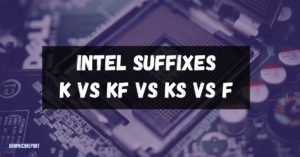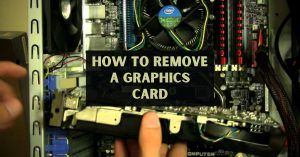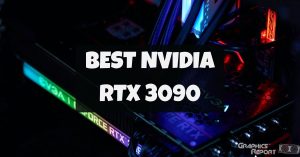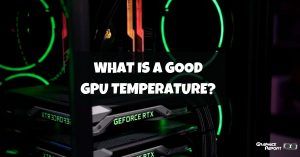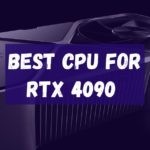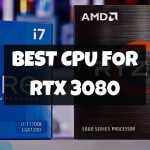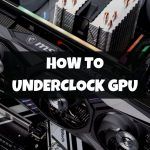
If you’re sick of hearing your GPU’s noise while you enjoy games, then you’ve found the right place. Through various engineering advancements throughout their development, GPUs have progressively gotten faster and quieter. They do not remain mute, however, entirely.
Gaming PCs still have some of the noisiest parts: the graphics processing units. Is it possible to quiet down the GPU in any way, and if so, how to make GPU quieter?
Please put on your headphones to drown out the outside noise, put them on as a sign of surrender, and turn up the volume to dangerously loud levels.
The correct information is all you need to mute a GPU in various ways. I’ll talk about strategies for lowering GPU fan noise in this article.
6 Ways To Make A Graphics Card Quieter In 2022
The vast majority of repairs may be made without reaching into your pocket. Cleaning the fans, adjusting the fan speed, or even relocating some internal cables are all examples of maintenance.
There is no additional charge for most GPU noise issues. In light of this, let’s examine some of the best solutions for noisy GPUs.
#1- Adjusting The Fan Speed
Reducing the speed of a noisy fan will quiet it down. Nevertheless, there are a few crucial things to remember. To begin with, it’s crucial to keep an eye on the GPU temps. The finest tools for this include MSI Kombuster, Unigine, FurMark, and 3DMark.
If your graphics card reaches a temperature of above 80 degrees Celsius with its fan at 100%, you can leave your fan on as long as the speed is not higher than 100%.
If your temps are constantly lower than 80 degrees Celsius, on the other hand, you can lower the speed of your fan.
#2- Underclocking
This might sound a little weird for some people, but underclocking your GPU can significantly impact how loud it is. Your GPU won’t produce as much heat if it isn’t working as hard.
Your GPU fans won’t need to be turned up as much when they’re needed as a result of that. Although some people may find this a little complicated, the procedure is actually relatively simple.
#3- Cleaning The Dust
Dust is another reasonably frequent problem that makes GPUs noisier with time. It is pretty challenging to prevent dust accumulation; thus, having sufficient airflow in your computer is crucial.
If your computer’s ventilation is insufficient, it’s in a dusty environment, or dust has accumulated over time. The moment has come to begin cleaning.
You have two options: a quick, light clean that won’t take much time, but you might miss a few hard-to-reach locations, or a thorough clean that requires disassembling the GPU and meticulously cleaning out all the dust.
#4- Oil Your Fan’s Bearings
Fan bearings may become loud and unlubricated over time. Giving your bearings a little extra lubricant is a simple repair for potentially loud fans, provided you’ve already followed the preceding instructions.
You can get lubricants from various suppliers, but use caution because getting oil on the PCB could cause additional issues. This approach produces results that fall into the last category, but if used carefully, it still yields good outcomes.
#5- Replace The GPU Heatsink
Another approach that mostly belongs in the category of last resort is this one. With a flat-head screwdriver, slowly and carefully pull the heatsink away from the GPU chip. Remove the video card’s heatsink.
Use the flat-head screwdriver to remove the thermal plate from the GPU if it is located on the back of the video card.
#6- Replace The Thermal Paste
When it comes to keeping the CPU and GPU cool, thermal paste is crucial. In a more complex situation, you must disassemble your GPU and reapply thermal paste to the heatsink. Your GPU’s inability to dissipate heat could result from improper thermal paste application.
The thermal performance will be considerably reduced when using a computer with dried-out thermal paste, resulting in clock speed throttling and a possible risk of overheating.
How Many dB Is A Quiet GPU Fan?
A silent GPU fan can operate at as little as 15dB, while 25–30dB is more appropriate. This is roughly comparable to 30dB of whispering persons, in terms of volume, in the actual world. Anything under 40dB should be suitable, considering the possibility of background noise.
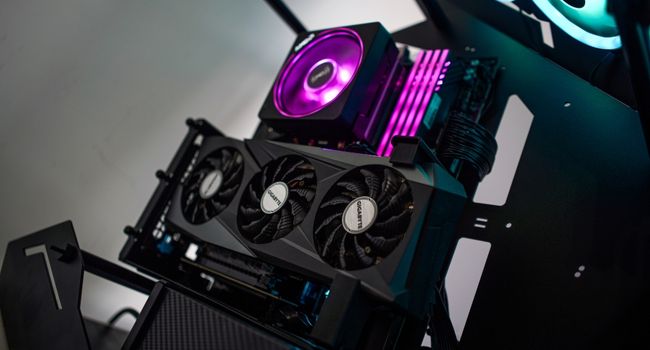
Some recent graphics cards include smarter fans that shut off when the card is idle. Simply it indicates that the fans won’t turn on till the temperature falls below a specified level. This functionality makes graphics cards a decent middle ground between active and passive cooling.
How Do I Reduce Fan Noise With MSI Afterburner?
You can increase your hardware’s processing power by using Msi Afterburner software. Millions of people utilize this practical tool daily. Afterburner allows you to control the fan RPM, overclock your GPU and CPU, and monitor your programs.
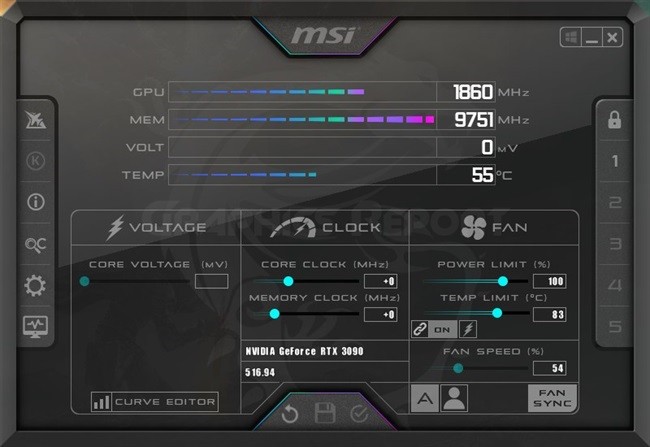
You may modify your fans using the software’s simple RPM fan settings to keep your components cool and operating at their best efficiency.
By default, the MSI Afterburner offers an auto fan speed option that regulates fan speed following the GPU’s factory specifications. Make sure the program has permission to use your personal fan settings.
Related article: Does refresh rate affect fps? A myth or reality?
How Do I Control My Nvidia GPU Fan Speed?
If you have an NVIDIA graphics card, you may customize it using the NVIDIA Control Panel. You can modify and edit this application in a variety of additional ways. Before making any changes, be sure you have checked everything twice.
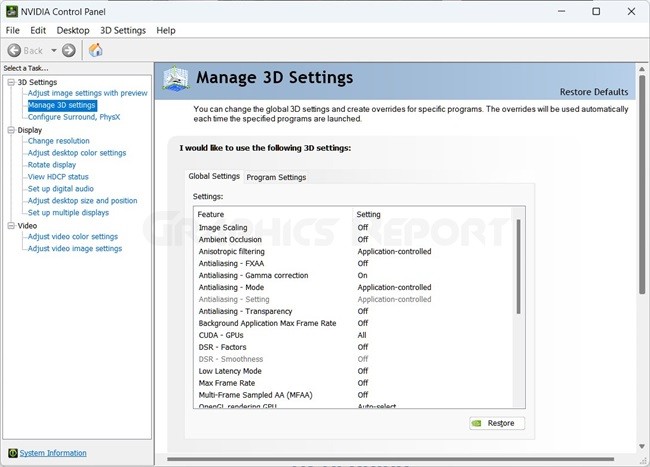
Performance should be selected first on the Nvidia control panel, followed by the device settings option, your chosen GPU speed, and saving your choices.
However, not every version of the NVIDIA Control Panel offers this feature. If yours doesn’t have it, you’ll need to utilize a third-party tool or software from your particular graphics card manufacturer to operate your GPU.
Why Is My GPU Fan Spinning So Fast?
The fan bearings on older GPUs frequently wear out or jam due to heavy usage. GPU fans start to hum loudly as a result. Lubrication of the fan shaft can solve this problem.
GPU fans might suddenly become loud due to inaccurate fan speed sensor readings, dust, and debris on the GPU fans, problems with the fan bearings, or driver problems with Windows. The GPU fan can be one of the better alternatives by being changed out for a fresh one.
What Is Good GPU Fan Speed?
As soon as the GPU reaches 30C for idle GPU temperature, I advise reducing fan usage to 30%. Place a marker at 80C or above when inside a room that is at average temperature and set your fan speed to 100%.
Operating the fan at 70% speed is entirely acceptable, which strikes an outstanding balance between the amount of noise and the amount of cooling.
The ideal temperature range for NVIDIA is between 158 and 185 Fahrenheit or 70 and 85 degrees Celsius. At the same time, AMD’s perform best between 60 and 70 Celsius, or 140 and 158 F.
My Final Thoughts On It!
You should examine the fans first to determine the cause of loud noises coming from your GPU. The most frequent issue is brought on by your GPU overheating or having too much dust inside of it, as well as problems with the fan bearings or Windows drivers. Coil whine from vibration in the GPU’s coil can potentially cause noise.
Reducing the strain on your GPU and lowering your frame rate will generally reduce noise. The issue can be resolved by identifying the relevant cause and implementing the necessary repair. There are specific issues that are quick and simple to remedy.
Limiting the frame rate and altering the fan speeds may be your only options if your GPU is still generating noise after that.
Someone unfamiliar with computers might find this very complicated, but if you follow the instructions above, you should be all right.

